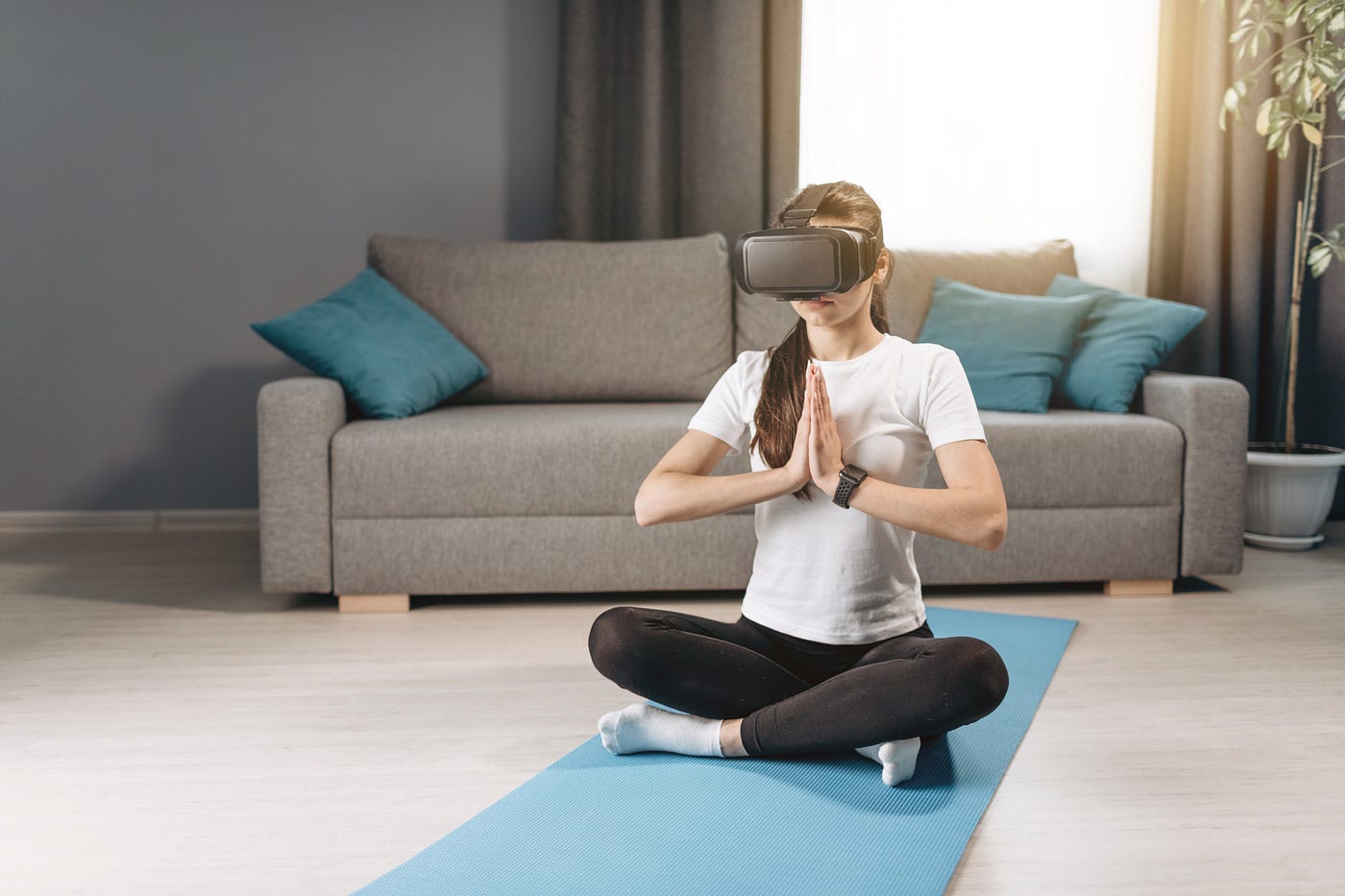How Virtual Reality Mindfulness Apps Are Reducing Anxiety
In an increasingly fast-paced world, anxiety has become a common challenge for many. Traditional mindfulness techniques like meditation and deep breathing remain effective, but technology is offering a new way to enhance these practices. Virtual reality (VR) mindfulness apps are emerging as powerful tools to combat stress, providing immersive experiences that transport users to calming environments and guide them toward mental clarity. By blending cutting-edge technology with ancient relaxation methods, these apps are changing how people manage anxiety—one virtual breath at a time.
The Immersive Escape from Stress
Unlike conventional meditation apps that rely on audio or simple visuals, VR mindfulness apps create fully immersive environments designed to engage the senses. Users can find themselves on a tranquil beach at sunset, in a serene forest, or atop a misty mountain—all from the comfort of their homes. This level of immersion helps quiet the mind more effectively than traditional methods by blocking out real-world distractions. The brain responds to these virtual settings as if they were real, triggering the relaxation response and reducing cortisol levels. For those struggling with racing thoughts, VR offers an immediate escape, making mindfulness more accessible and impactful.
Guided Meditation with Enhanced Focus
One of the biggest hurdles in meditation is maintaining focus, especially for beginners. VR mindfulness apps solve this problem by providing structured, visually engaging sessions that hold attention. Guided meditations in VR often include soothing narration paired with interactive elements, such as floating orbs to follow with the eyes or breathing exercises synchronized with the environment. This multisensory approach keeps users engaged, preventing the mind from wandering. Studies suggest that VR meditation can lead to deeper states of relaxation compared to audio-only sessions, making it especially beneficial for those with high anxiety levels.
Exposure Therapy for Anxiety Disorders
Beyond general stress relief, VR mindfulness apps are being used as therapeutic tools for anxiety disorders, including phobias and PTSD. Gradual exposure to anxiety-inducing scenarios in a controlled virtual space helps users build resilience without real-world consequences. For example, someone with social anxiety might practice public speaking in a virtual auditorium, while a person with PTSD could work through triggers in a safe, guided setting. Therapists are increasingly incorporating VR mindfulness into treatment plans, as the technology allows for personalized, repeatable sessions that reinforce coping mechanisms.
Biofeedback and Personalized Relaxation
Some advanced VR mindfulness apps integrate biofeedback technology, using heart rate monitors or EEG headbands to tailor sessions based on the user’s physiological state. If the system detects elevated stress levels, it might adjust the environment—dimming lights, slowing the pace of guided breathing, or shifting to a more soothing landscape. This real-time adaptation makes mindfulness practices more effective, as the app responds to the user’s needs rather than offering a one-size-fits-all approach. Over time, users learn to recognize their stress signals and develop better self-regulation skills.
Accessibility for Reluctant Meditators
Many people dismiss traditional meditation because they find it boring or difficult to commit to. VR mindfulness apps remove these barriers by making relaxation feel like an engaging activity rather than a chore. Gamified elements—such as unlocking new environments, tracking progress, or earning rewards for consistent practice—motivate users to return regularly. The novelty of VR also appeals to those who might not otherwise try meditation, expanding the reach of mindfulness to a broader audience.
The Future of Anxiety Management
As VR technology becomes more affordable and widespread, its applications in mental health will continue to grow. Future developments may include AI-driven virtual therapists, social VR meditation groups, or even haptic feedback to enhance relaxation through touch. Early research indicates that consistent use of VR mindfulness apps can lead to long-term reductions in anxiety, offering a promising alternative or supplement to traditional therapy.
For anyone seeking relief from anxiety, VR mindfulness apps provide a modern, effective solution. By merging the ancient wisdom of meditation with the immersive power of technology, they offer a sanctuary from stress—one virtual breath at a time. Whether used daily or in moments of acute stress, these apps prove that the future of mental wellness lies at the intersection of innovation and mindfulness.
Visit these links for similar information :
https://homeimprovementcarmel.com/
https://mabsnews.com/
https://dunyapaknews.com/
https://kentraveling.com/
https://indihomekeluarga.com/
https://sportsnewsriet.com/
https://kodangnews.com/
https://cloudsnewsnetwork.com/
https://aworkforce.org/
https://floornhome.com/
https://basementlighting.org/
https://newcarreleasenews.com/
https://shaheennewstv.com/
https://almodonnews.com/
https://registercents.com/
https://newsarenas.com/
https://rkvnews.com/
https://keralanewsonline.com/
https://buuhoodlenews.com/
https://homedecorfurnitureandaccessories.com/
https://webtotalfitness.com/
https://tinafashionsaigon.com/
https://floridahealthsite.org/
https://askmeforum.com/
https://theclevelandhomecoming.com/
https://jcarettrealestate.com/
https://idealnewstv.com/
https://univetmedicine.com/
https://muraipokertop.com/
https://newslead.net/

